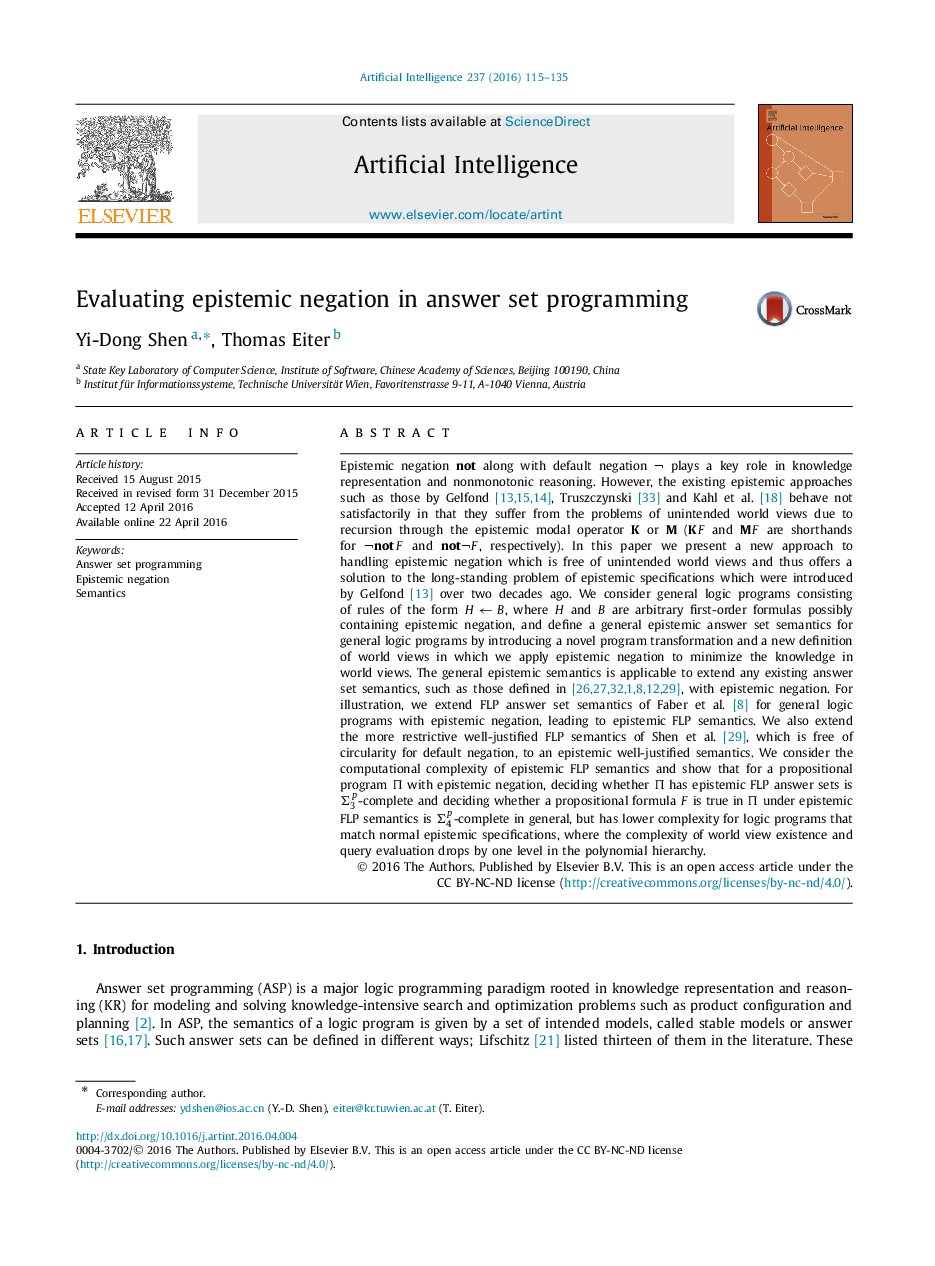| کد مقاله | کد نشریه | سال انتشار | مقاله انگلیسی | نسخه تمام متن |
|---|---|---|---|---|
| 6853097 | 658311 | 2016 | 21 صفحه PDF | دانلود رایگان |
عنوان انگلیسی مقاله ISI
Evaluating epistemic negation in answer set programming
ترجمه فارسی عنوان
ارزیابی نفی معرفتی در برنامه ریزی مجموعه پاسخ
دانلود مقاله + سفارش ترجمه
دانلود مقاله ISI انگلیسی
رایگان برای ایرانیان
کلمات کلیدی
پاسخ برنامه نویسی، نفی عاطفی، معناشناسی،
موضوعات مرتبط
مهندسی و علوم پایه
مهندسی کامپیوتر
هوش مصنوعی
چکیده انگلیسی
Epistemic negation not along with default negation ¬ plays a key role in knowledge representation and nonmonotonic reasoning. However, the existing epistemic approaches such as those by Gelfond [13], [15], [14], Truszczynski [33] and Kahl et al. [18] behave not satisfactorily in that they suffer from the problems of unintended world views due to recursion through the epistemic modal operator K or M (KF and MF are shorthands for ¬notF and not¬F, respectively). In this paper we present a new approach to handling epistemic negation which is free of unintended world views and thus offers a solution to the long-standing problem of epistemic specifications which were introduced by Gelfond [13] over two decades ago. We consider general logic programs consisting of rules of the form HâB, where H and B are arbitrary first-order formulas possibly containing epistemic negation, and define a general epistemic answer set semantics for general logic programs by introducing a novel program transformation and a new definition of world views in which we apply epistemic negation to minimize the knowledge in world views. The general epistemic semantics is applicable to extend any existing answer set semantics, such as those defined in [26], [27], [32], [1], [8], [12], [29], with epistemic negation. For illustration, we extend FLP answer set semantics of Faber et al. [8] for general logic programs with epistemic negation, leading to epistemic FLP semantics. We also extend the more restrictive well-justified FLP semantics of Shen et al. [29], which is free of circularity for default negation, to an epistemic well-justified semantics. We consider the computational complexity of epistemic FLP semantics and show that for a propositional program Î with epistemic negation, deciding whether Î has epistemic FLP answer sets is Σ3p-complete and deciding whether a propositional formula F is true in Î under epistemic FLP semantics is Σ4p-complete in general, but has lower complexity for logic programs that match normal epistemic specifications, where the complexity of world view existence and query evaluation drops by one level in the polynomial hierarchy.
ناشر
Database: Elsevier - ScienceDirect (ساینس دایرکت)
Journal: Artificial Intelligence - Volume 237, August 2016, Pages 115-135
Journal: Artificial Intelligence - Volume 237, August 2016, Pages 115-135
نویسندگان
Yi-Dong Shen, Thomas Eiter,
